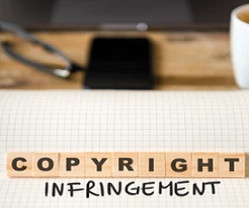Effect Of Non-Use Of Trademark
IP and Legal Filings
FEBRUARY 16, 2023
Once the mark is registered under trademark act, the mark then gives the proprietor some rights to enjoy with the trademark repetitively and liabilities to maintain so that the proprietor doesn’t lose the ownership. Image Sources : Shutterstock] A trademark’s removal from the trademark registration is the consequence of non-use.













Let's personalize your content